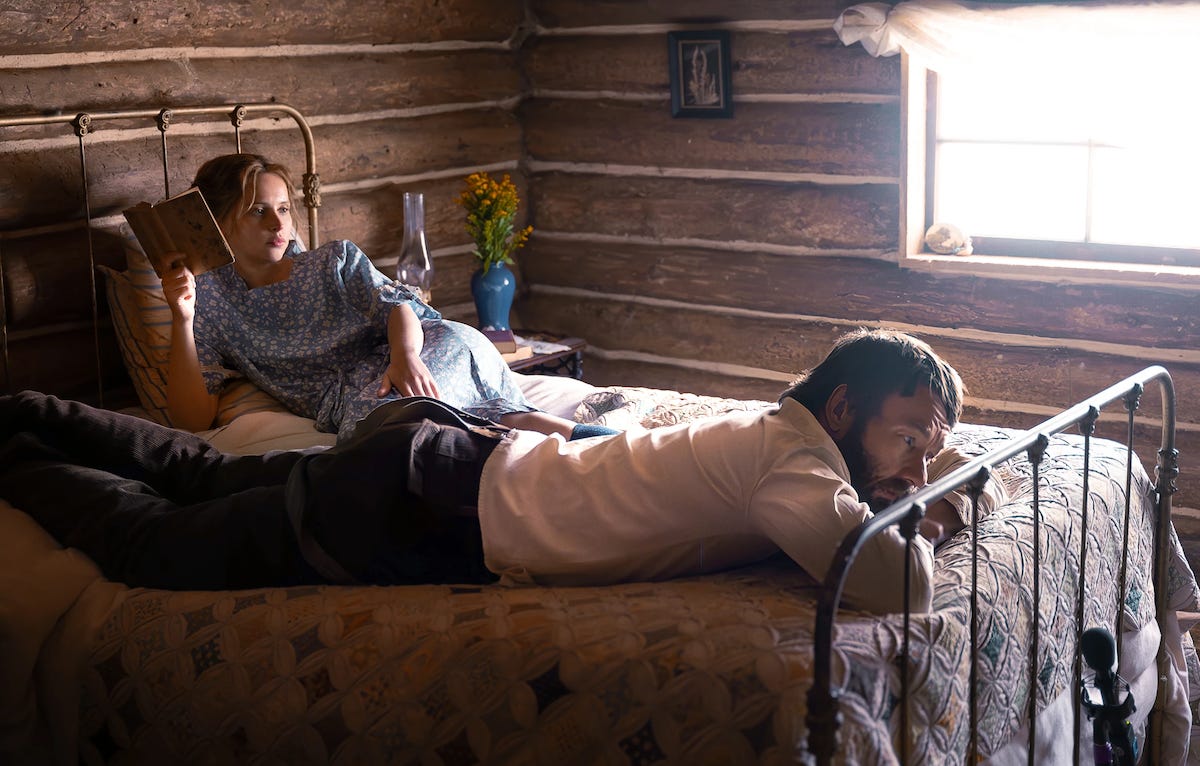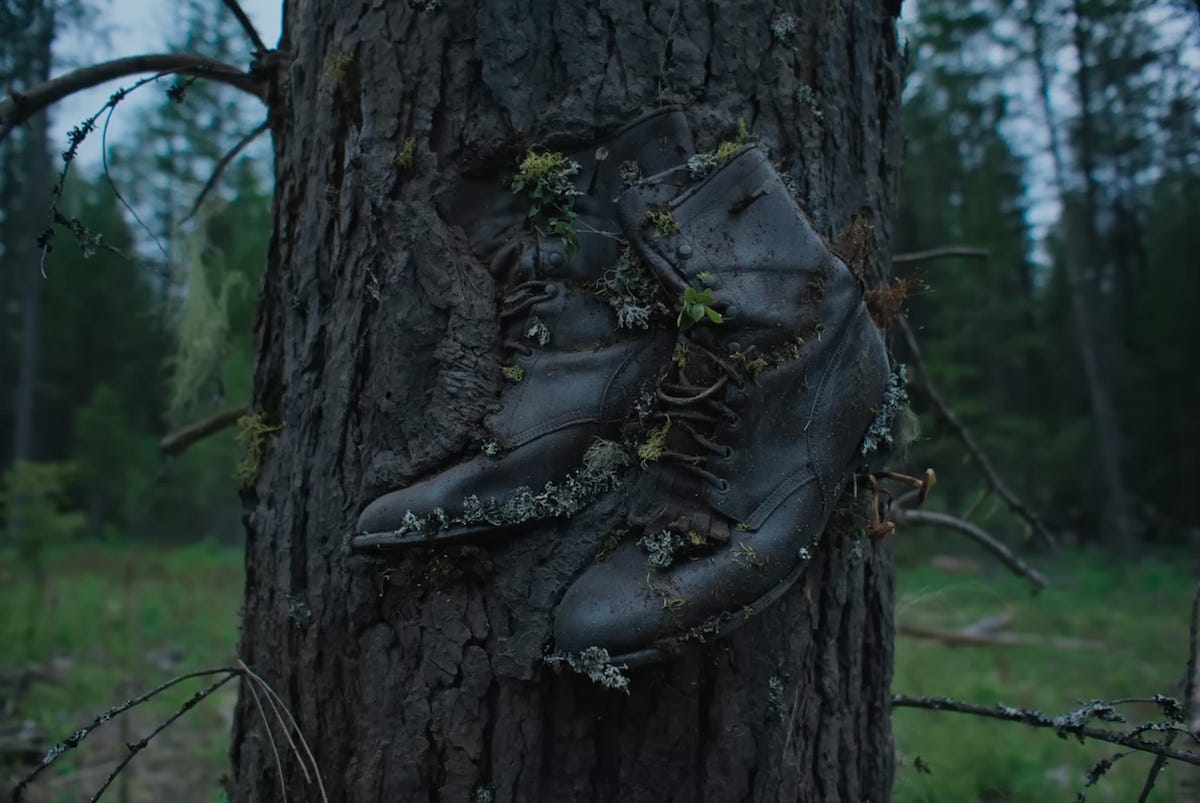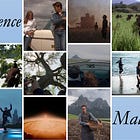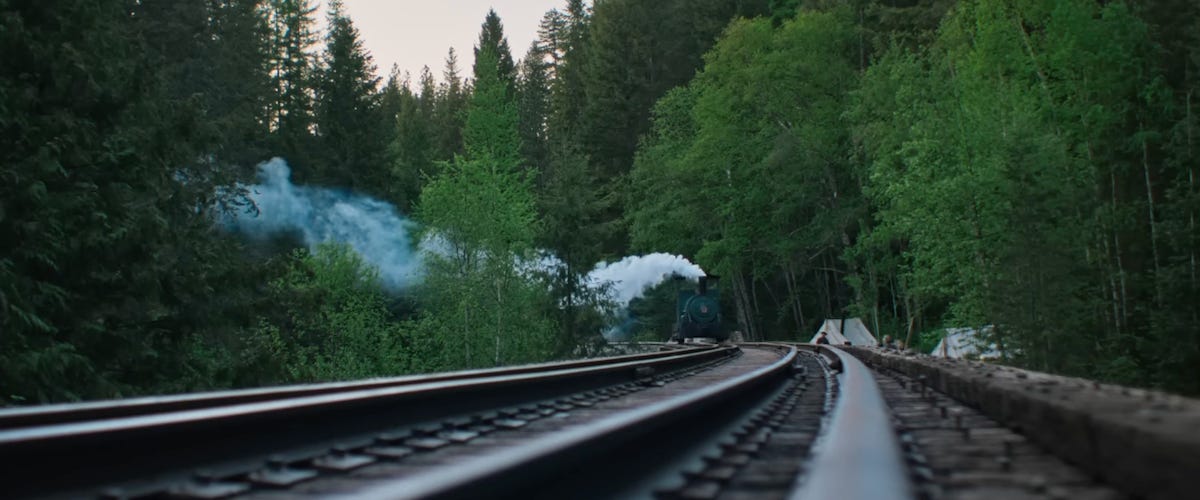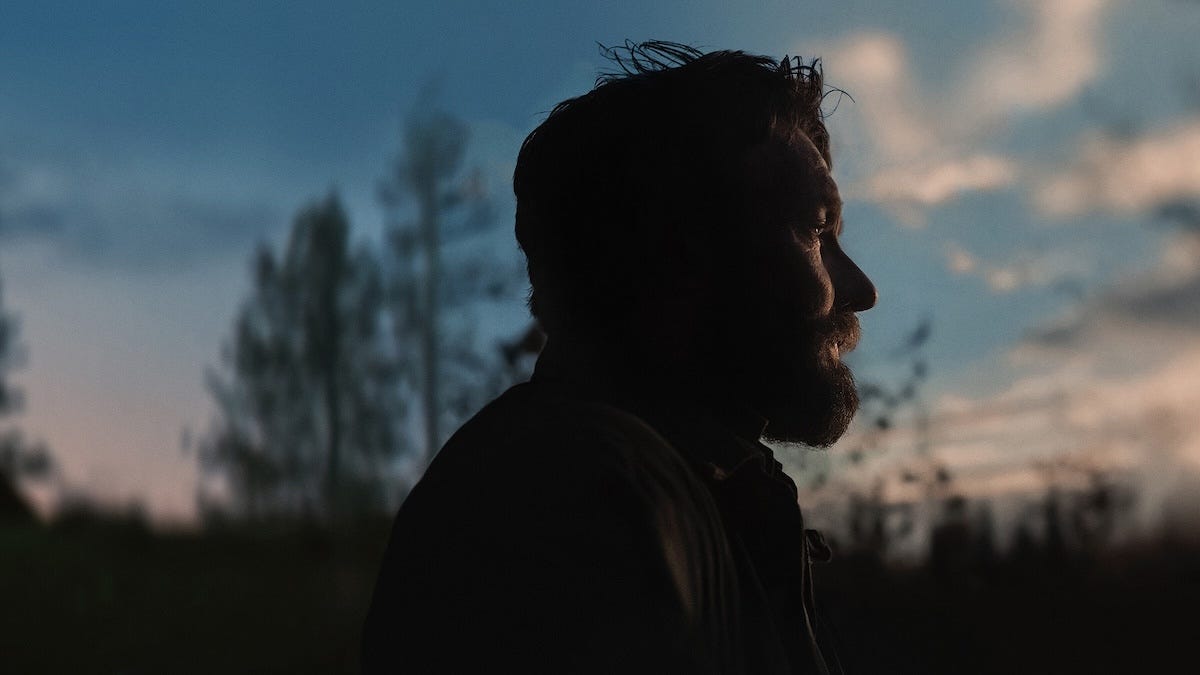Train Dreams: The Best American Film of 2025
Clint Bentley directs a quietly profound picture of stoic proportions.
American cinema is not what it used to be. The 2020s have not been kind, and one could even argue that it’s all been one slow, steady downward tumble since the early 2010s. Shouldering the burden of keeping the pulse of American cinema beating in creative, deep, and original ways is much too much for one Paul Thomas Anderson to handle. And as good as One Battle After Another is, it’s still pretty mid compared to his earlier masterpieces.
So Clint Bentley’s Train Dreams arrives to the station, like a breath of fresh pinewood air. A much needed oxidant for polluted cinephile lungs, heavy with the wheeze of toxic fumes from the politicised junk of the Hollywood factory. It’s been over a month since I’ve seen it and not a day has gone by that I haven’t thought of it in some shape or form.
Netflix has reached a new high with Train Dreams. This is Capital-C Cinema not lowercase-c content, the most prestigious art film from the streaming giant to date. The appetite is satiated with a myriad of flavourful riches. Adolpho Veloso’s gorgeous magic hour cinematography of the deep American landscape; the reverent reflections from Arn Peoples (William H. Macy) as he puts our place in this world into soulful perspective; the moments of deep love between Robert Grainier (Joel Edgerton) and his wife Gladys (Felicity Jones) and daughter Kate, the centre of his tiny, inconspicuous universe; the wolf-dogs that keep Robert sane in times of dire need; the conversation Robert has with Claire Thompson (Kerry Condon) about how even the smallest of creatures serve some imperceptible yet no less meaningful purpose on Earth.
Train Dreams feels like some kind of tiny miracle of a film. The ensemble is terrific, led by a never-better Edgerton, with lived-in performances that support the story without needing to dominate it. Even more impressive than the actors is the passage of time that Clint Bentley manages to evoke. It’s only his second feature film as a director, and yet the transitions from scene to scene, weaved through the warm embrace of storytelling in the form of Will Patton’s comforting cadence in voice over, makes one think it’s directed by the steady hand of a veteran who’s experienced all of life’s tragedies and wonders. For that is the essence of the film: the multitudes of life’s ebbs and flows.
Set along the Idaho panhandle, in the northwestern US region, with Los Angeles over 1,000 kilometres to the south, New York and Washington DC over 3,000 kilometres to the east, Train Dreams feels like it’s in a different American universe from a different American dimension. A million miles away from the cesspools of concrete, callous politics and tribal ideologies that split humans into bits.
Nature is very much a lead character here, which makes the comparisons to Terrence Malick accurate, and most welcome. Train Dreams is more temporal and Malick’s stuff is more spiritual, though Bentley doesn’t completely shy away from God and the metaphysical, since these centripetal forces all move towards the great mystery of life, which is - as the magnificent ending indicates - the core of the film.
The geographical setting is just as important to the film’s potency as its historical one. The 1910s and 1920s bridged the two centuries through the powerful invention of the locomotive train, the great symbolic herald of the fast-approaching technological age of interconnected networks. Robert Grainer works as a logger and throughout his life, though barely travelling, he bears witness to the advancing science of machines, trying to make sense of it all as a simple man whose only vocation required brawn over brains.
The atmosphere of this particular point in the film’s space and time creates a wondrous resonance. This environment, this era, and this character form a trifecta that arrive as a much needed tonic for those of us who appreciate living in an age of highly advanced technology, but can’t seem to shake off the feeling of a great detachment within. Train Dreams is the cinematic equivalent of escaping to the country. The answer for that restless feeling city dwellers get when they want to just “get away from it all”.
The film has such a calming and meditative affect on the spirit, in fact, that a 22-minute Immersive Audio Journey was created as a “Sleep Story” for the popular meditation app Calm. A brilliant marketing move because it directly speaks to the film as a balm for the restless mind. Complimenting this is its philosophical contours, which are decidedly stoic in nature. So much so that you can close your eyes and point a finger at any random passage in Marcus Aurelius’ Meditations, and the dots to Train Dreams connect themselves...
Keep in mind how fast things pass by and are gone — those that are now, and those to come. Existence flows past us like a river: the “what” is in constant flux, the “why” has a thousand variations. Nothing is stable, not even what’s right here. The infinity of past and future gapes before us — a chasm whose depths we cannot see.
Book 5, Paragraph 23
Or,
Anyone with a feeling for nature — a deeper sensitivity — will find it all gives pleasure. Even what seems inadvertent. He’ll find the jaws of live animals as beautiful as painted ones or sculptures. He’ll look calmly at the distinct beauty of old age in men, women, and at the loveliness of children. And other things like that will call out to him constantly — things unnoticed by others. Things seen only by those at home with Nature and its works.
Book 3, Paragraph 2
Impossible not to think of characters like Arn Peoples or Robert Grainier’s quiet moments in the forest or on the train, when reading passages like that.
You can’t get lower to the earth than the extraordinarily ordinary Robert Grainier - the kind of man authors don’t write books about, certainly not the kind of book directors adapt into Netflix movies. That is of course exactly what makes him, and the film, so special. I purposefully avoided getting into the specifics of plot or what kind of tragedies and wonders befall Grainier here. I’d also urge readers to steer clear from the teasers and trailers, which give away much of what deserves to be experienced with fresh eyes. This is the kind of picture whose surprises and ambiguities deserve preservation, so that the film happens to you as life happens to Grainier - flowing past like a river.
None of this would be possible without Denis Johnson’s original novella. I bought it soon after I saw Train Dreams at LFF, and I finished reading it - on the train, as it happens - in the same amount of time it takes to watch the movie. It’s a beguiling piece of literature, more violent and shocking than the film in a few ways, but carrying the exact same unpretentious profundity as the film.
In closing, I’ll leave you with one of my favourite passages. A taste of the primal beauty and wonder that, for those inclined, can stir something in the soul.
Grainier felt sure this dog was got of a wolf, but it never even whimpered in reply when the packs in the distance, some as far away as the Selkirks on the British Columbia side, sang at dusk. The creature needed to be taught its nature, Grainier felt. One evening he got down beside it and howled. The little pup only sat on its rump with an inch of pink tongue jutting stupidly from its closed mouth. “You’re not growing in the direction of your own nature, which is to howl when the others do,” he told the mongrel. He stood up straight himself and howled long and sorrowfully over the gorge, and over the low quiet river he could hardly see across this close to nightfall... Nothing from the pup. But often, thereafter, when Grainier heard the wolves at dusk, he laid his head back and howled for all he was worth, because it did him good. It flushed out something heavy that tended to collect in his heart, and after an evening’s program with his choir of British Columbian wolves he felt warm and buoyant.
“Train Dreams” (2012, Granta Books) — Denis Johnson
Train Dreams is streaming on Netflix from November 21, 2025.


